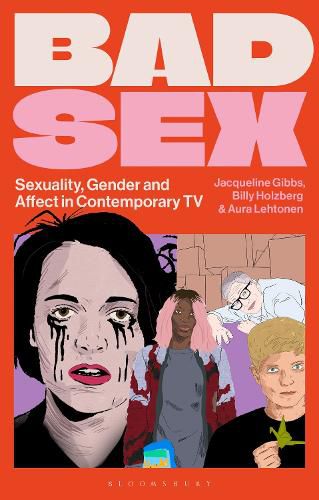Readings Newsletter
Become a Readings Member to make your shopping experience even easier.
Sign in or sign up for free!
You’re not far away from qualifying for FREE standard shipping within Australia
You’ve qualified for FREE standard shipping within Australia
The cart is loading…






Bad Sex traces the evolution of representations of sex on screen, from earlier portrayals of sex as glamorous or taboo, to more complex depictions of often awkward or painful experiences and feelings.
Jacqueline Gibbs, Billy Holzberg, and Aura Lehtonen examine the representation of sex and sexuality in contemporary English language drama and 'dramedy' shows like Fleabag (2016, 2019), Sex Education (2019-23), I May Destroy You (2020) and Euphoria (2019-), arguing that TV is where the politics of sexuality and gender is negotiated under the contemporary conditions of neoliberalism.
Through a cultural analysis of key television shows, they identify this shift as driven by the diversification of representations of sex and sexuality, as women, trans and non-binary, Black and minority ethnic, working-class and disabled TV professionals carve some space in a traditionally white, middle-class, cis male dominated industry. In doing so, they explore the affective potential and limits of 'bad' sex on our screens and what these representations can tell us about sexual politics and gender cultures today.
$9.00 standard shipping within Australia
FREE standard shipping within Australia for orders over $100.00
Express & International shipping calculated at checkout
Bad Sex traces the evolution of representations of sex on screen, from earlier portrayals of sex as glamorous or taboo, to more complex depictions of often awkward or painful experiences and feelings.
Jacqueline Gibbs, Billy Holzberg, and Aura Lehtonen examine the representation of sex and sexuality in contemporary English language drama and 'dramedy' shows like Fleabag (2016, 2019), Sex Education (2019-23), I May Destroy You (2020) and Euphoria (2019-), arguing that TV is where the politics of sexuality and gender is negotiated under the contemporary conditions of neoliberalism.
Through a cultural analysis of key television shows, they identify this shift as driven by the diversification of representations of sex and sexuality, as women, trans and non-binary, Black and minority ethnic, working-class and disabled TV professionals carve some space in a traditionally white, middle-class, cis male dominated industry. In doing so, they explore the affective potential and limits of 'bad' sex on our screens and what these representations can tell us about sexual politics and gender cultures today.